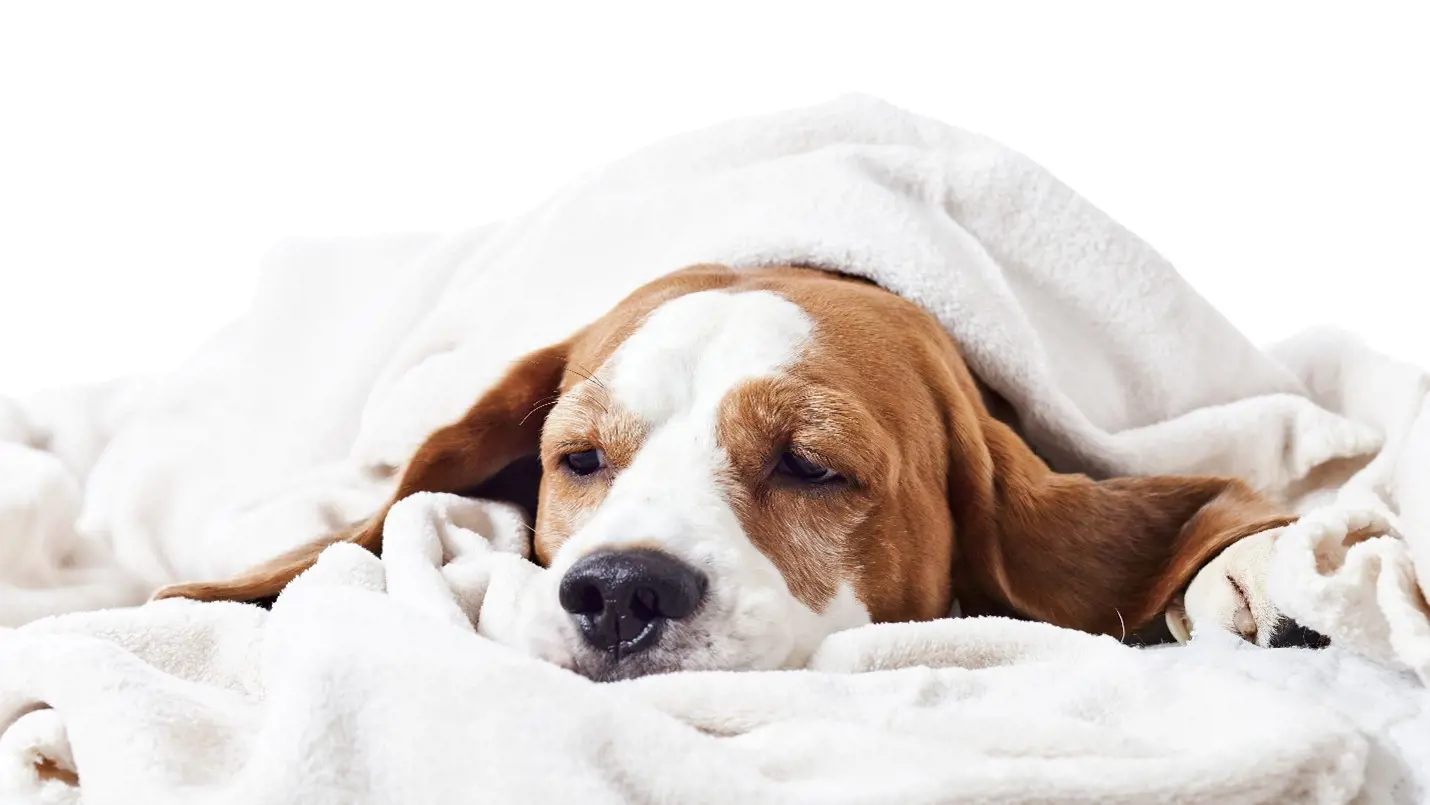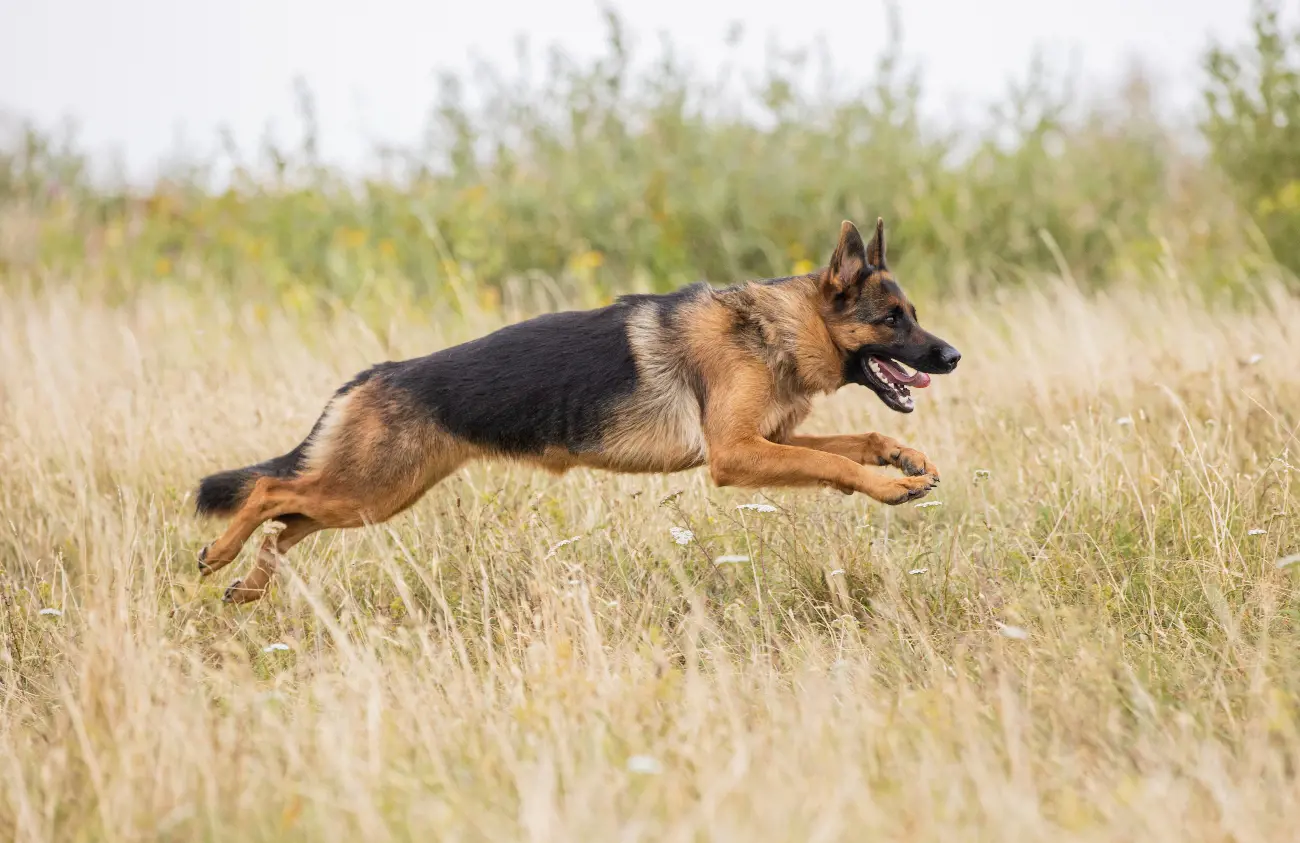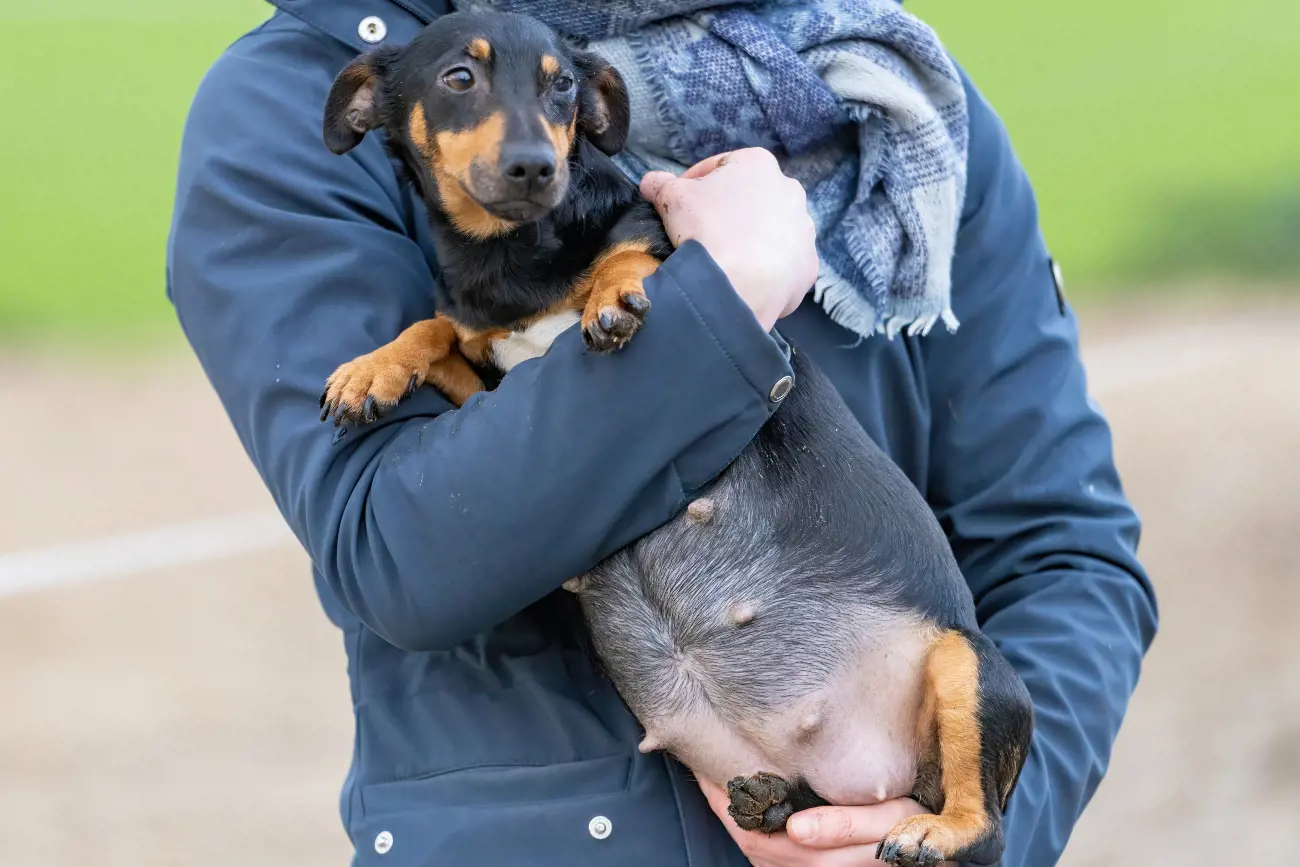How to control my dog's chewing: An expert's guide
28th November, 2023
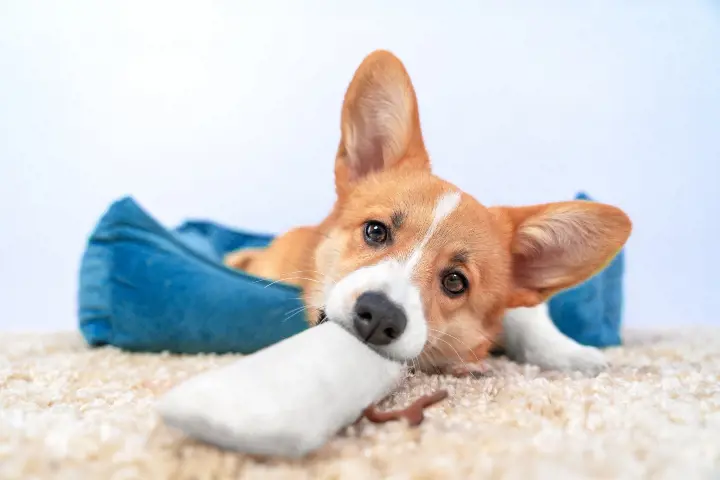
As a pet parent, you might have encountered your beloved canine companion engaging in a chewing spree. It's a common scenario, but it can quickly escalate from an innocent pastime to a destructive habit.
This guide will offer comprehensive strategies on "how to control my dog's chewing" and provide essential information to ensure your furry friend's well-being.
Understanding the chewing behaviour in dogs
Dogs explore the world through their mouths. It's their primary tool to examine their environment, similar to how we use our hands.
This natural behaviour to chew can become a destructive habit if not properly managed.
The role of chewing in a dog's life
Chewing serves multiple purposes for dogs. For puppies, it helps alleviate the discomfort caused by emerging teeth, while for adult dogs, it helps maintain strong jaws and keep their teeth clean.
It's also a way for dogs to combat boredom or relieve mild anxiety and frustration.
When chewing becomes a problem
Behavioural problems arise when dogs direct their chewing towards inappropriate objects like furniture, shoes, or cables.
It's important to identify the reasons behind the excessive or destructive chewing to address it effectively.
Recognising the causes of excessive chewing
Identifying why your dog is chewing excessively is pivotal in managing this destructive behaviour. Here are some prevalent causes of excessive chewing:
Teething phase in puppies
Teething is a typical cause for puppies to chew excessively. It eases the discomfort in their gums as their adult teeth emerge.
However, during this phase, puppies often fail to distinguish between acceptable and unacceptable objects to chew on.
Medical conditions
Specific medical conditions can influence your dog's chewing behaviour. For instance, if your dog isn't receiving a balanced diet, they might develop a condition known as 'pica,' leading them to chew non-food substances.
In other cases, gastrointestinal ailments can prompt dogs to chew on objects to alleviate feelings of nausea or discomfort.
Separation anxiety
Separation anxiety is another common cause of excessive chewing. Dogs suffering from this condition may chew furniture or other items in response to the stress of being left alone.
Check out one of our blogs for tips on what you can do to help your pet if it is suffering from anxiety.
Boredom
Boredom is another culprit behind excessive chewing.
Insufficient physical movement and mental stimulation can lead dogs to find their own form of entertainment, often resulting in destructive chewing.
Implementing effective strategies to control chewing
Now that we've identified the causes, let's delve into the strategies on 'how to stop my dog chewing things when I'm out' and even when I'm at home.
Providing appropriate chew toys
Just as you would baby-proof a home for a toddler, dog-proofing your home is the first step.
Provide a variety of safe, durable chew toys that are distinct from household items. This helps your dog understand what's okay to chew and what's not.
Regular exercise and mental stimulation
Ensuring your dog gets plenty of physical exercise and mental stimulation can significantly curb destructive chewing.
Engage your dog in daily walks, play sessions, and provide puzzle toys filled with treats to keep them occupied.
Training and positive reinforcement
Training your dog to understand what's okay to chew and what's not is crucial.
If you catch your dog chewing on something inappropriate, redirect their attention to a chew toy, praising them when they start chewing on it.
Using positive reinforcement methods can be highly effective in curbing inappropriate chewing.
Using deterrents
Products are available that can make household objects unappealing to your dog.
These products have an unpleasant taste or smell for dogs, which can act as a taste deterrent to prevent them from chewing on specific items.
Dealing with separation anxiety-related chewing
If your dog's excessive chewing stems from separation anxiety, it's essential to help them feel comfortable when left alone.
Teach them to associate your absence with positive experiences.
This could be as simple as leaving them with a favourite toy or giving them a treat-filled puzzle toy before you leave.
Ensuring a balanced diet
A balanced diet is crucial to your dog's overall health, and it can also influence their chewing behaviour.
If your dog isn't getting the necessary nutrients, they might attempt to compensate by chewing on inappropriate items.
Consult your vet for advice on the best diet for your dog.
When to seek professional help
If your dog's chewing behaviour persists despite your efforts, it might be time to seek professional help.
A Certified Applied Animal Behaviourist or a Certified Professional Dog Trainer can provide specialised training and techniques to manage this compulsive behaviour.
The importance of pet insurance
As a pet parent, having pet insurance can provide peace of mind in case your dog develops a medical condition that leads to excessive chewing. If you'd like a dog insurance quote for your furry friend, you can get a quote through our website.
You can also get in touch with our pet insurance team at 0330 102 5748 for more information. It must be noted that behavioural issues will not be covered unless the policy has been in force for 24 months.
Conclusion
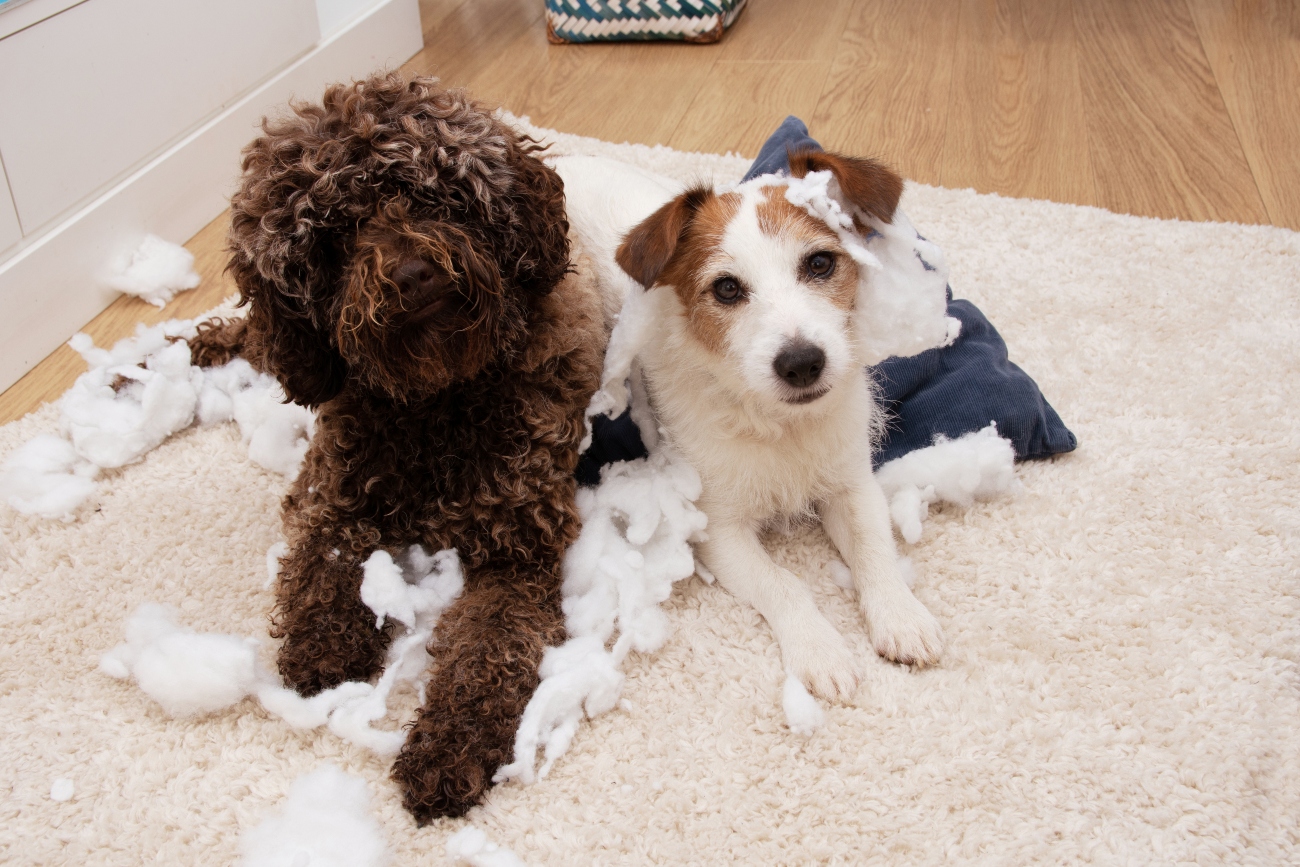
Managing your dog's chewing behaviour requires understanding, patience, and consistent effort.
By identifying the reasons behind the chewing and implementing appropriate strategies, you can successfully control your dog's chewing habit while ensuring their overall health and happiness.
Remember, a well-exercised, mentally stimulated, and well-fed dog is less likely to engage in destructive chewing.
Helpful Pages
Recent Posts
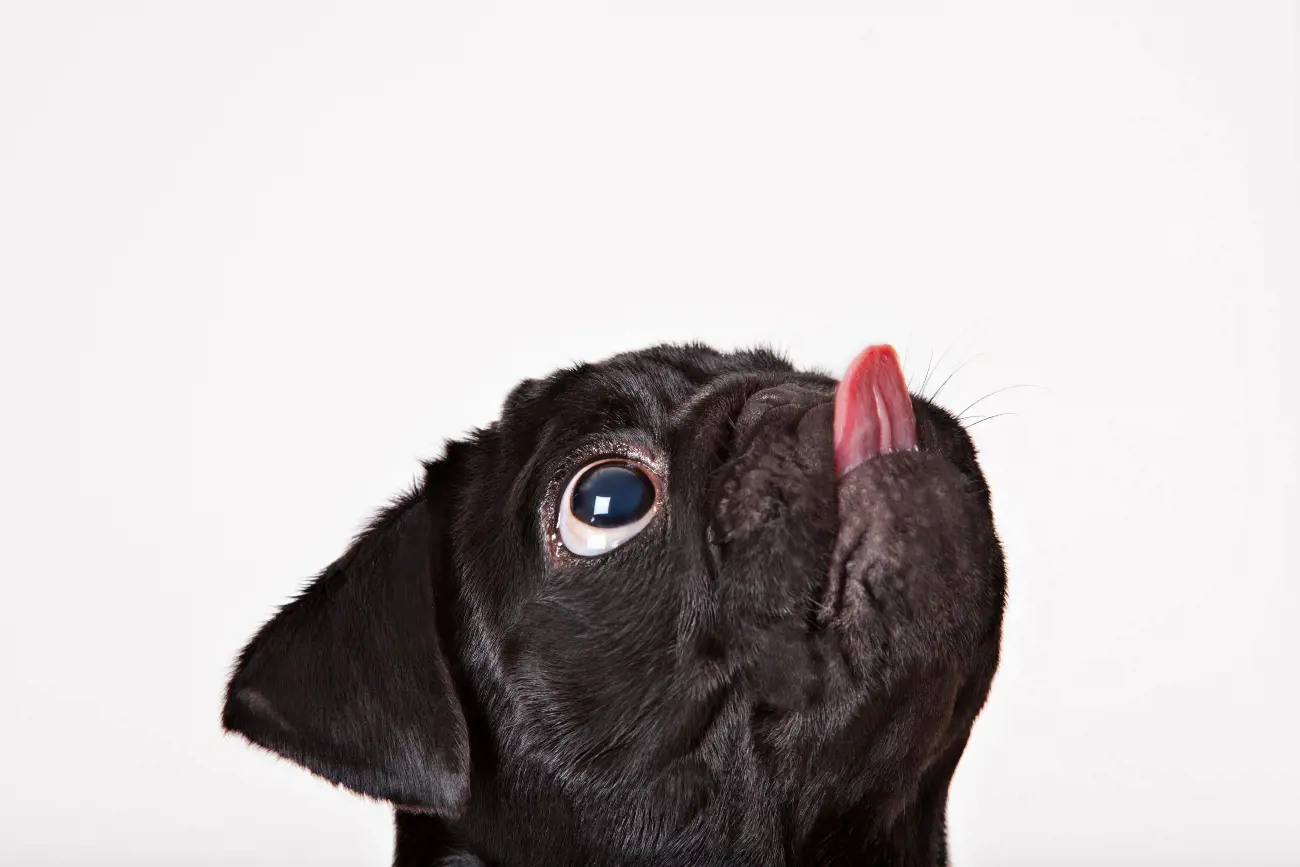
Why do Pugs lick the air?
02/10/24Pet Insurance Quote
- 98% claims paid *
- Claims paid directly to vets
- 24/7 vet video consultations
- Interest free monthly payments

